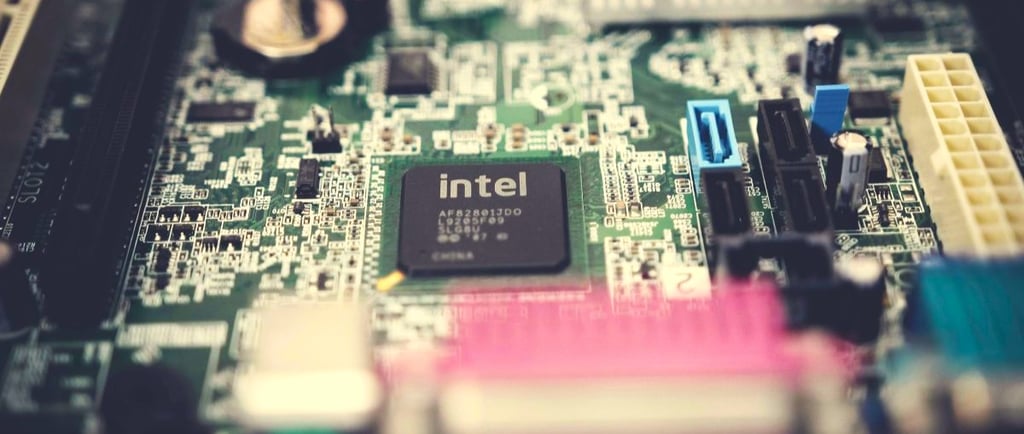The Highest GHz Processor Ever Made: AMD and Intel's Overclocking War
The highest GHz CPU ever recorded reached 9.12 GHz using Intel’s i9-14900KF. This article compares record-breaking overclocks and top commercial processors from AMD and Intel, including the FX-8350, Ryzen 9950X3D, and more.
NEWS


The Highest GHz Processor Ever Made: AMD and Intel's Overclocking War
Clock speed. It’s the old-school bragging right, the number that once ruled every CPU box in the early 2000s. While modern computing has shifted focus to cores, threads, efficiency, and cache size, that good ol’ GHz rating still sparks something in tech lovers. Because let's face it—there's still something thrilling about pushing a chip to its absolute limit, watching numbers climb into territory they were never meant to reach.
So what is the highest GHz processor in the world? Who’s made the fastest CPU? And can you actually buy one of these monster chips? Let’s talk about both AMD and Intel, and how they’ve each chased the crown for clock speed supremacy—on the bench and in the real world.
The Current King: Intel i9-14900KF – 9.12 GHz
Let’s not beat around the bush. The fastest clock speed ever achieved belongs to Intel.
In early 2024, overclocker "wytiwx" set a new world record by pushing an Intel Core i9-14900KF to a mind-blowing 9.12161 GHz. That’s not a typo. Over nine gigahertz. This insane feat was pulled off using liquid helium, which is even colder than liquid nitrogen, to keep the chip from cooking itself.
Now, this wasn't a usable system. All E-cores and hyperthreading were disabled, and the environment was carefully controlled just for breaking records. It’s more of a "look what this chip could do" than a practical setup. But still, a record is a record, and Intel officially holds the world’s highest GHz CPU right now.
AMD’s Best Shot: FX-8350 – 8.79 GHz
AMD isn't too far behind. In fact, back in 2012, AMD shocked the world when overclocker Andre Yang took the FX-8350—a now-ancient 8-core chip from the Bulldozer architecture—and ramped it up to 8.79433 GHz.
Like the Intel record, this was done under extreme conditions with liquid nitrogen cooling, and everything not essential was turned off to reduce thermal load and increase voltage headroom.
It’s still the highest clock speed ever achieved on an AMD processor, and it held the global crown for years until Intel finally surpassed it. FX chips were far from perfect for everyday use, but they’ll always have a place in overclocking history.
Real-World Performance: Ryzen 9 9950X and 9950X3D
AMD has also made some impressive strides by jumping to the present day and looking at real-world CPUs, ones that you can actually put in your gaming PC or workstation.
The Ryzen 9 9950X, part of the Zen 5 family, is AMD’s current flagship for enthusiasts. And during a recent overclocking event hosted by Asus, a team managed to push this chip to 7.54 GHz using liquid nitrogen. While not as high as the FX-8350’s record, this was done on a modern architecture, and that’s saying something. It's got 16 cores, 32 threads, and is an absolute powerhouse in real workloads too—not just for benchmarks.
Then there’s the Ryzen 9 9950X3D, which might not reach extreme GHz levels, but offers 5.7 GHz factory boost speeds out of the box. No special cooling required. No BIOS black magic. It’s a stable, highly efficient chip that crushes gaming thanks to AMD’s unique 3D V-Cache design. It’s not made for overclocking, but its performance-per-watt and latency improvements are hard to beat.
Complete List of All AMD Ryzen Processors + FAQ
Top 20 CPU Models with the Highest Processor Base Frequency
Don’t Forget the 7800X3D and Intel’s 13900KS
AMD’s Ryzen 7 7800X3D is another fan favorite. It maxes out around 5.0 GHz, but it has insane gaming performance due to its smart cache structure. In esports and CPU-bound titles, it still punches above its weight.
Intel, on the other hand, offered the Core i9-13900KS before the 14900KF came along. It was the first consumer chip to officially hit 6.0 GHz boost, out of the box. That means you could actually run it at those speeds in your system, without exotic cooling.
So while Intel owns the raw speed record, AMD has done an amazing job building smart, well-rounded CPUs that still clock impressively high and perform where it matters most.
Why Clock Speed Still Matters (But Isn’t Everything)
These days, GHz alone doesn’t tell the whole story. Modern CPUs use smarter architectures, cache stacking, AI-powered scheduling, and aggressive boost algorithms. But for certain tasks—like gaming, low-latency processing, emulation, and anything single-threaded—higher clocks still make a noticeable difference.
And for overclockers? It’s not even about practical use. It’s about the thrill. The challenge. The race for one more MHz.

